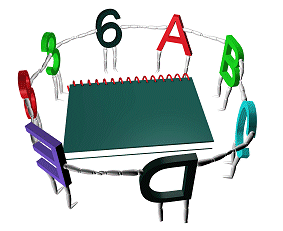
You may be wondering how search engines select the top pages from millions of others. There are calculations involved called algorithms and you have to work with these to put your site in page one. The great part is that all of the things search engines look for to rank your site are beneficial to your shoppers as well.
How Do Search Engines Work?
There are three basic important elements that make up a search engine index and process of searching out relevant documents (web pages). Understanding this process and terminology better will help you gain insight, knowledge and tools with which to better rank your store.
1. Web crawler – This is also known as a “spider” or “robot” which roams the web looking for content. A web crawler is a computer program that digests web pages and any existing links relevant to the page. The web crawler begins by looking through the web pages that are available in its index. Pages not in the existing index or database are best located by links from pages that are. Thus, the database/index continually grows and the web crawler also goes back to the index to check for updates and again search for new available links continuously.
2. Index – The index is the database that holds all information of websites and pages that the web crawler has discovered during its frequent crawling. Whenever any website or page is updated the index also updates its stored information when it discovers the changes, thus it continually grows over time. Not all pages are updated as frequently as others. Your crawl rate will depend on the regularity of which you create content, your level of duplication, your PageRank and number of incoming links.
3. Search engine – A search engine is a software program that sorts through all the information stored in the index and uses a specific algorithm or set of rules to deliver relevant search results according to the basic metrics like inbound links, relevance and authority. It’s well worth noting that the hierarchy of search page results is not dependent. This means in a nutshell that if your page is #2 and the #1 page drops you are not going to automatically slide in to the #1 slot… Instead the entire query is adjusted based on the specific algorithmic values of that particular search engine.
What is Goal of Search Engines?
The ultimate goal of a search engine is to provide the most relevant, helpful and informative web pages to its customers… Web searchers. Page results for different search engines may vary depending on the algorithm that they are using. Thus, website owners aim to improve their rank based on the specific algorithmic metrics of each specific search engine.
How Can I Get on Page 1 of Search Engines?
1. Links – Links are small routes leading back to your website from others, thus a lot of these backlinks will increase your visibility in search engines and establish relevancy from the donor page’s content and link text. Links are a vote… simple as that, winning the election requires enough votes to do so.
2. On Page Metrics – Make your pages more search engine and user friendly by supplying each page with page specific, unique and descriptive content (TEXT). Use short and highly relevant page titles to utilize the strength of the page most effectively. Use proper Meta descriptions with a call to action. The Meta description is not used to rank your page, but can clearly lend you an advantage in click through rates… which in itself can help you rank better as most search engines use some type of behavioral metrics in their algorithms.
3. Keywords – Do not go out of your way to target very specific keywords phrases in the same phrasal order and context. For example, using the exact term “green bananas” in a page 10x will make the page unnatural and spammy, but using different textual ordering and associated phrases will increase your ability to rank for “green bananas” and other related phrases as well.

3 responses to “How Search Engines Rank Pages”
Really helpfull post.Its a gold dust for the beginners in SEO industry.Thanks for sharing.
thanks for post …. it’s awesome
Excellent guide for SEO starters, hopefully we’ll see some more posts soon from you. Thanks